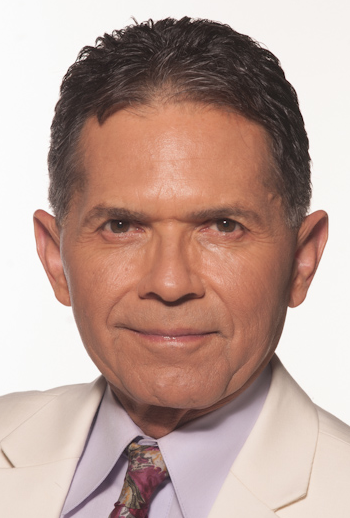Editor’s note: Amigos805 welcomes local guest columns, letters to the editor and other submissions from our readers. All opinions expressed in submitted material are those of the author and do not necessarily represent the viewpoint of Amigos805.
By David Magallanes • Guest contributor

David Magallanes
Because of the history of Spain and Mexico, the Spanish language is laden with the influence of Roman Catholicism. Phrases invoking God, Jesus, the Virgin Mary, the angels and all the saints appear regularly in any Spanish conversation, particularly among humbler souls.
Spanish is likewise prepackaged with phrases, sayings, “dichos” that are meant to guide us with the wisdom of generations past. Much of that guidance is based on biblical references or Catholic doctrine. But some of the machinery of the Hispanic mind is tinged by a certain degree of sexism, which, given the historic paternalism of the Catholic Church, is not surprising.
For example, there is a saying: “Las madres hacendosas hacen a las hijas perezosas” (“Industrious mothers make daughters lazy”). This dicho might stem from the days (not that long ago and into the present) when daughters learned household chores from their mothers while the boys went out and did boy things out on the street, in the neighborhood, or with their buddies. After all, they were boys who weren’t raised to do “girl things.” There is still a strong cultural element of this sexist template in many U.S. Latino families.
Nonetheless, there is a legitimate point to this saying, if we apply it generally to our children. But there is a fine line between doing too much for them, and not doing enough. It’s a delicate balance: if we do too much for them, we ruin them (we make them “lazy”); if we do too little, we ruin them again (we “deprive” them). This is just as precarious as any high-wire act. So what’s a parent to do?
It all goes back to a modern, technical dicho: “There’s no operating manual for raising children.” We must muster all the parental wisdom we possibly can by reading books and articles, talking with psychologists and other parents, searching online and plain old “going with our gut.”
In the end, the goal is for our adult children to say one day, “Well, they tried their best with what they had.”
— David Magallanes is a writer, speaker and professor of mathematics.
***
Echando a Perder a Nuestros Hijos
Por David Magallanes • Columnista invitado
Debido a la historia de España y México, el idioma español está cargado de la influencia del catolicismo romano. Frases que invocan a Dios, a Jesús, a la Virgen María, a los ángeles y a todos los santos aparecen regularmente en cualquier conversación en español, sobre todo entre las almas más humildes.
El español también está pre-empaquetado con frases, refranes, “dichos” con el propósito de guiarnos con la sabiduría de generaciones pasadas. Un gran volumen de esa guía se basa en referencias bíblicas o en la doctrina católica. Pero una parte de la maquinaria de la mentalidad hispana está teñida por cierta medida de sexismo, que, dado el paternalismo histórico de la Iglesia Católica, no es nada sorprendente.
Por ejemplo, hay un dicho: “Las madres hacendosas hacen a las hijas perezosas”. Este dicho puede haber originado durante la época (no hace mucho tiempo y hasta el presente) cuando las hijas aprendían las tareas domésticas de sus madres mientras los varones salían de la case y se comportaban como “muchachos” en la calle, en el vecindario o con sus cuates. Al fin y al cabo, eran niños que no fueron criados para hacer “cosas de niñas”. Hasta la fecha existe un fuerte elemento cultural de este patrón sexista en algunas de las familias latinas estadunidenses.
No obstante, hay un punto legítimo en este dicho, si lo aplicamos generalmente a nuestros hijos. Pero hay una delgada línea entre hacer demasiado por ellos y no hacer lo suficiente. Es un equilibrio delicado: si hacemos demasiado por ellos, los echamos a perder (los hacemos “perezosos”); y si no hacemos lo suficiente, los volvemos a arruinar (los “privamos”). Todo esto es tan precaria como andarse en la cuerda floja. Entonces, ¿qué es lo que debe hacer un padre o una madre de familia?
Todo se remonta a un dicho moderno y técnico: “No existe un manual de instrucciones para criar a los hijos”. Debemos reunir toda la sabiduría parental que se pueda, leyendo libros y artículos, hablando con psicólogos y otros padres y madres, buscando en línea y simplemente haciendo caso a nuestras corazonadas y siguiendo nuestros instintos.
Al final, el objetivo es que nuestros hijos adultos digan algún día: “Bueno, hicieron lo mejor que pudieron con lo que tenían a mano”.
— David Magallanes es un escritor, orador y profesor de matemáticas.
Editor’s note: Amigos805 welcomes comments on stories appearing in Amigos805 and on issues impacting the community. Comments must relate directly to stories published in Amigos805, no spam please. We reserve the right to remove or edit comments. Full name, city required. Contact information (telephone, email) will not be published. Please send your comments directly to frank@amigos805.com
